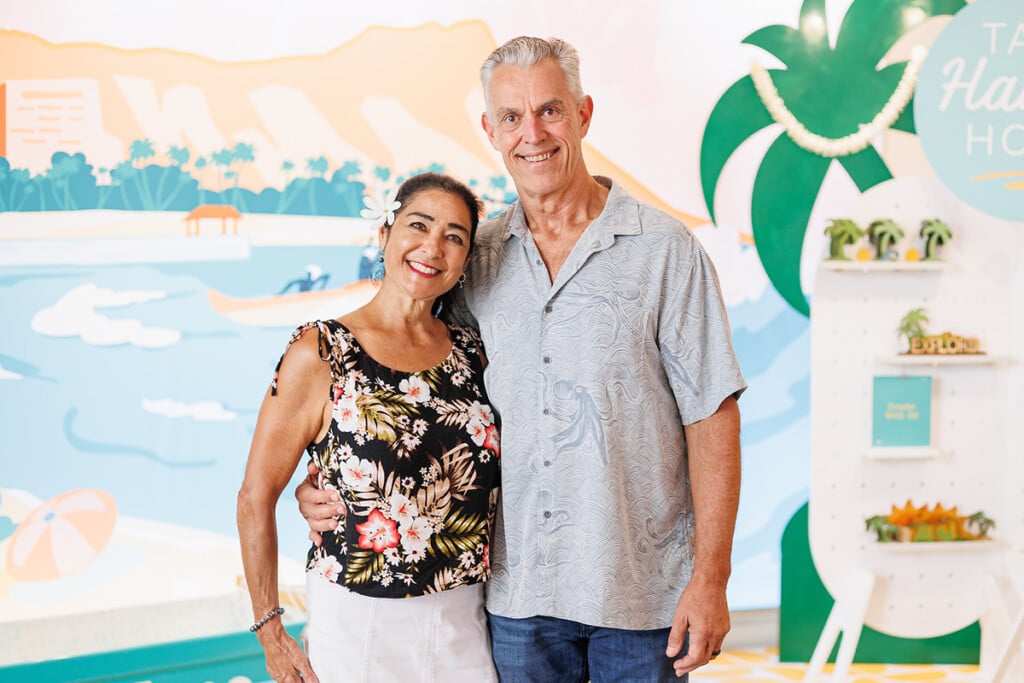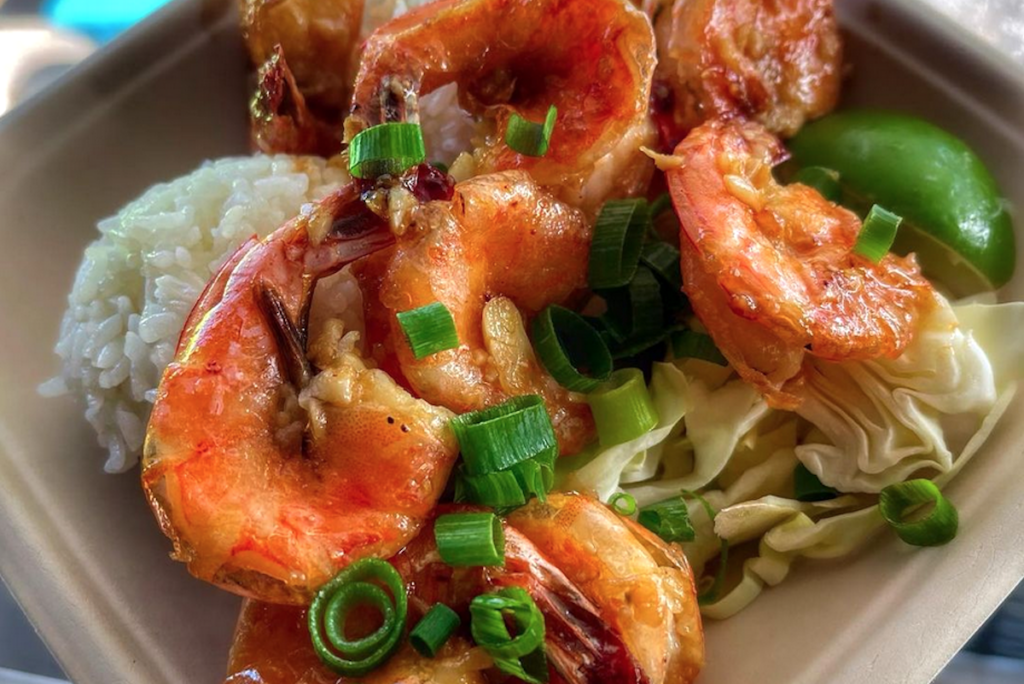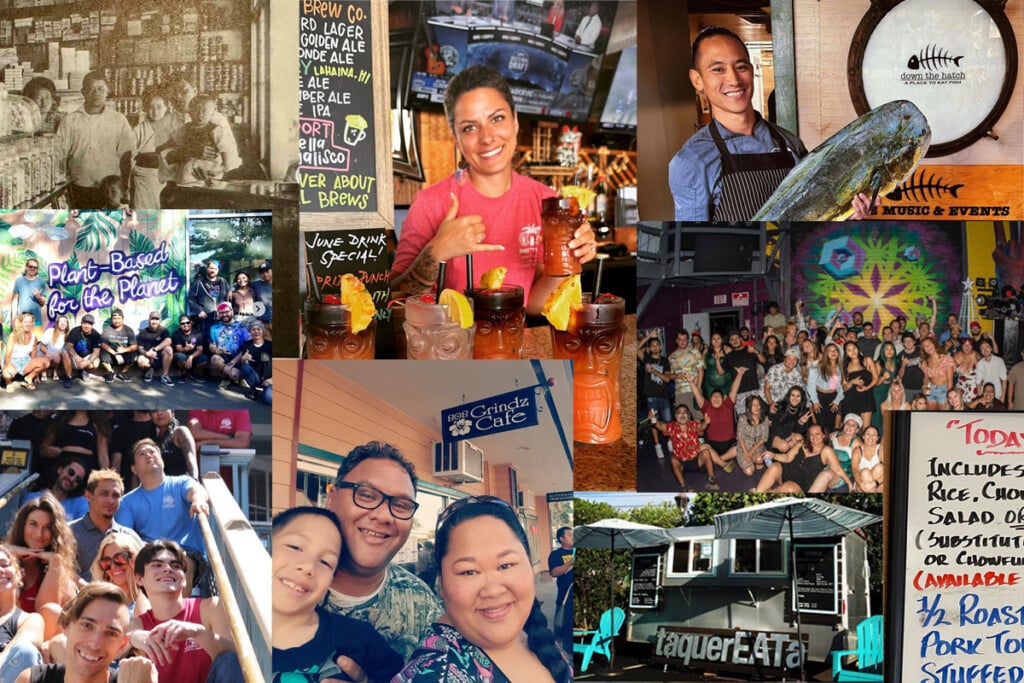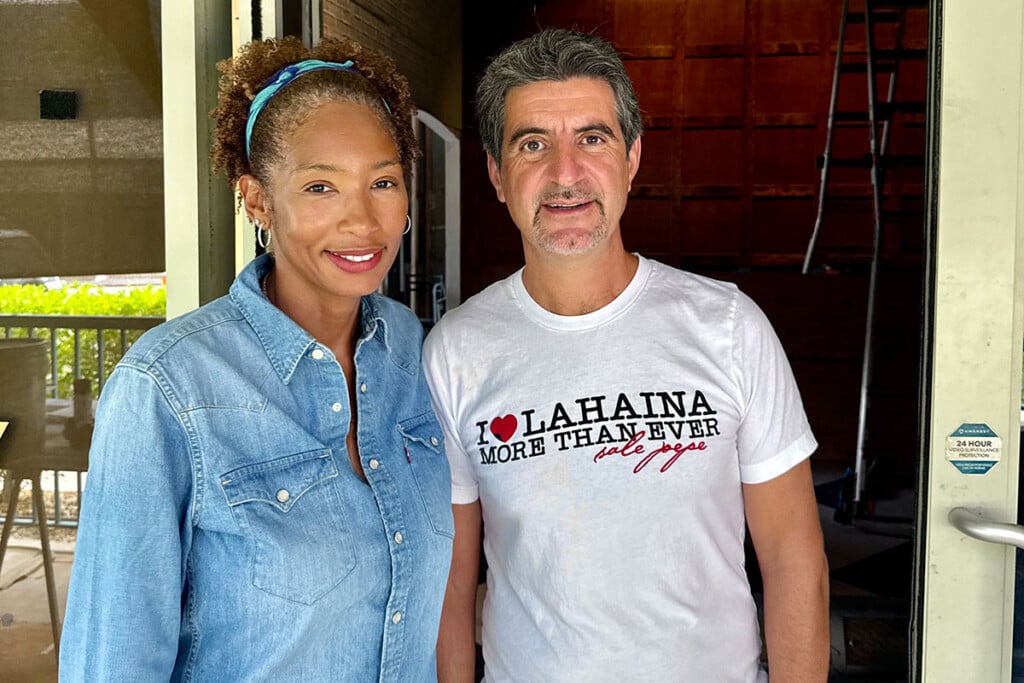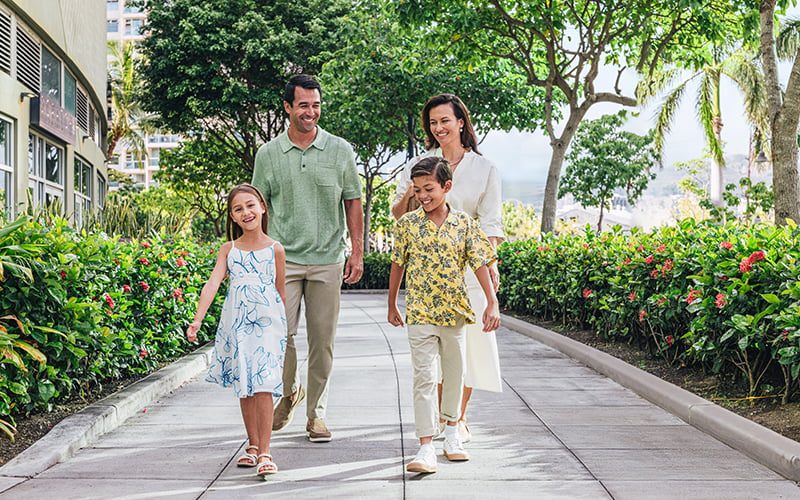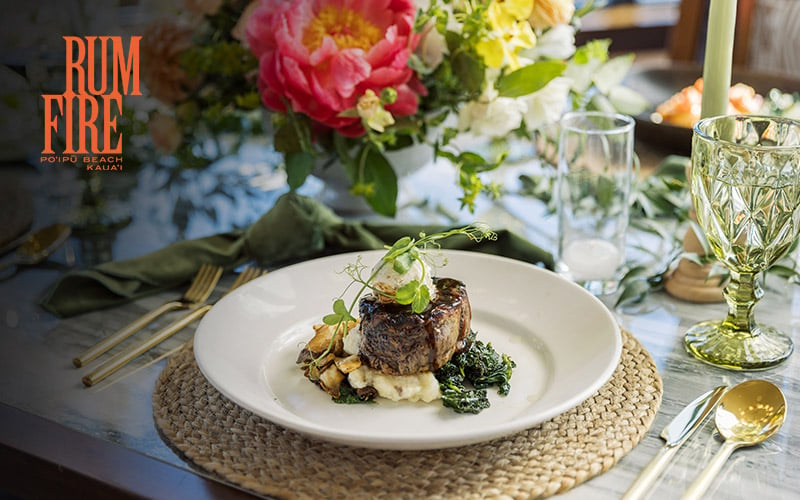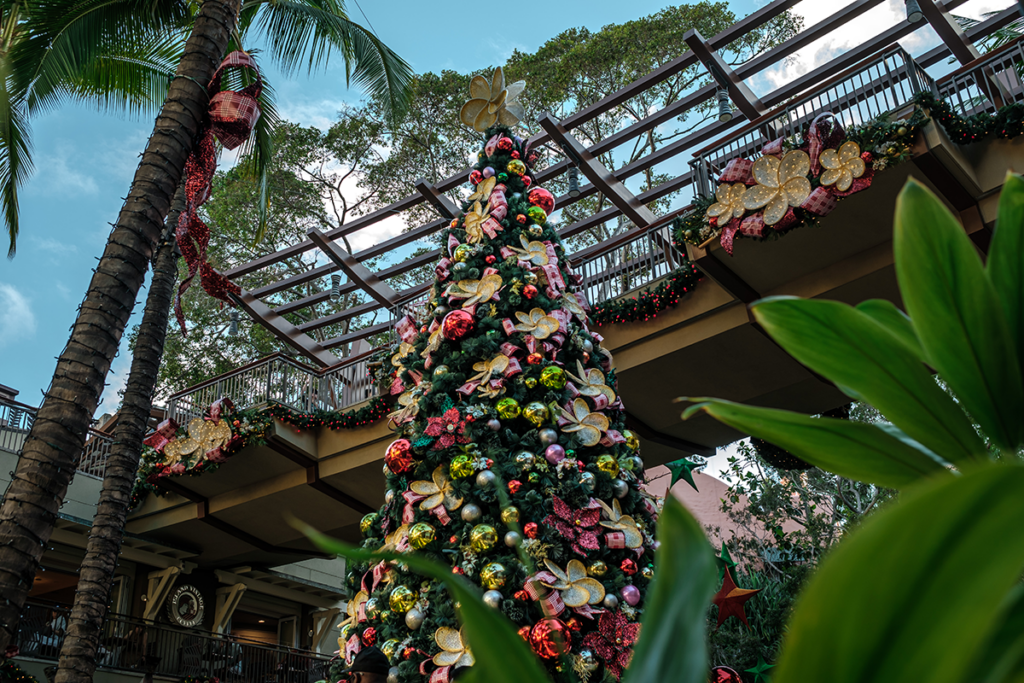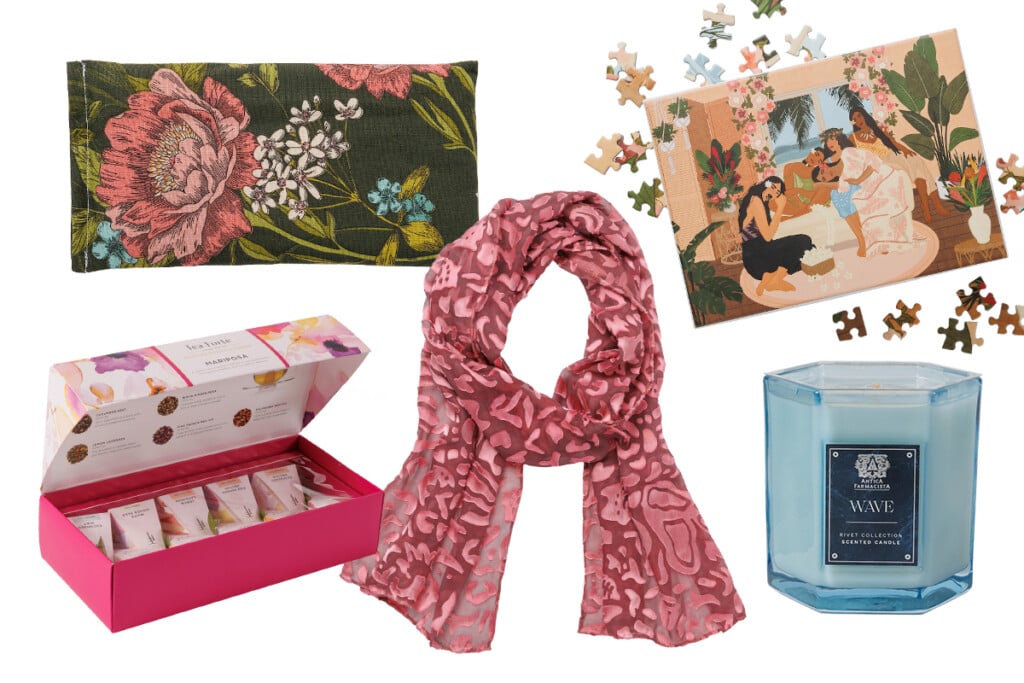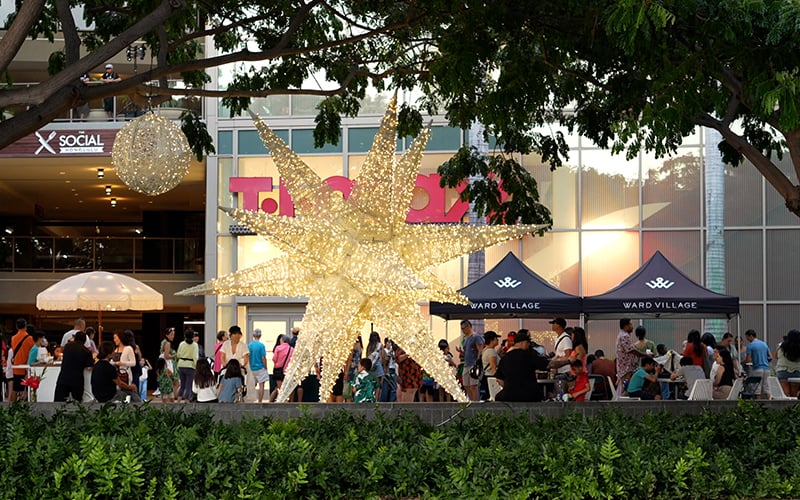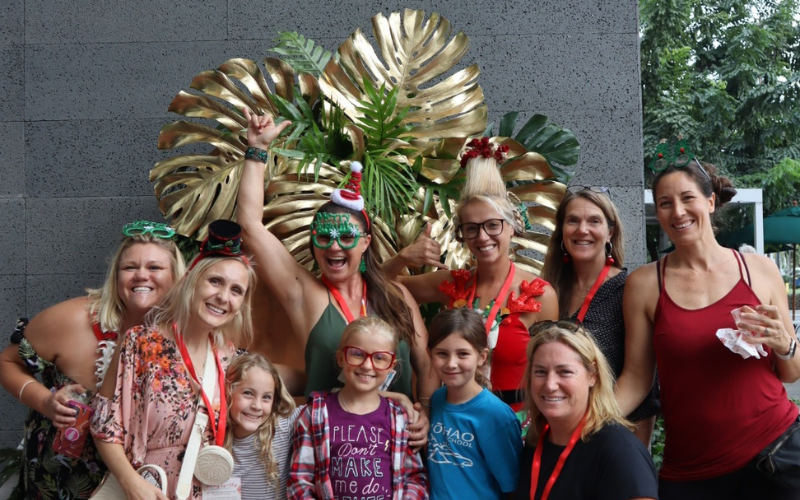The Way Back: “The Only Way Out Is to Go Back In”
Qiana and Michele di Bari, who lost restaurants in the Lahaina fires, say rebuilding may help their community heal.
Weeks after fires obliterated Lahaina, survivors are grappling with shock and grief. And they’re talking about renewal. Here, a Buddhist priest, a Hawaiian cultural practitioner, a teacher of ‘ōlelo Hawai‘i, and husband-and-wife restaurateurs outline visions that touch the heart of a community.
SEE ALSO:
The Way Back: “This Will Be My Answer”
The Way Back: “Rooting a New Lahaina”

Photo: Aaron K. Yoshino
A decade ago, Qiana and Michele di Bari moved from New York to Lahaina, where, they say, they finally found a place that felt like home. But in August, after the couple and their 12-year-old daughter, Jada, fled the wildfires that tore through the town, and after chaos and confusion forced multiple evacuations a few days later, Jada broke down and said, “This doesn’t feel like home anymore.”
In the days that followed, Qiana’s mind mirrored the volatility of her surroundings. After she and Michele were allowed back into Lahaina, they saw that their house and three others had somehow been spared, but the rest of the neighborhood was destroyed. Their restaurants, Sale Pepe and Pacific’O, too, were gone.
That evening, I received a text from Qiana with a photo of her and Michele facing the ruins of Sale Pepe, the restaurant they built in a former KFC in Old Lahaina Center. Gone was the red-tiled pizza oven, gone was the window in front of which Michele’s mother used to set up and roll out dough for pasta on her winter sojourns from Italy.
In her text, Qiana wrote: “We are heartbroken. It is still so raw. We are processing. We are grieving. We are inspired. We are committed. We are determined to give back to the community what we have been given and will rebuild. We live in Lahaina. We will remain in Lahaina.”
But a few days later, after enduring another fire flare-up, a night in their car, and an hourslong wait in the botched rollout of a placard system, anxiety crushed her. “Get me out of here, I can’t stay here, I gotta get out. This place is a nightmare,” she had told her husband. Meanwhile, Jada cried: “Why are we here? What are we doing?” The di Baris flew to O‘ahu. And they thought about leaving Maui for good.
When we spoke again, 10 days after the fire, they were back on Maui, and Qiana and Michele had resolved once more to rebuild and remain in Lahaina. For there is a certain kind of community that only a restaurant can provide, and specifically in Lahaina, which she and Michele were drawn to for the way it offered a cross-section of humanity in such close quarters. “I love the pedestrian aspect,” Qiana says. “I love walking down the road, rubbing shoulders with people and seeing all kinds of people together. I can walk to work. Jeff Bezos can sit in my restaurant, and I can talk to the homeless guy on the corner five minutes later. It just felt like home to me.”
Sale Pepe hosted marriages, engagements and other celebrations. It was a place where Maui chefs and food industry workers came to be nourished themselves. Over the years, the di Baris’ community and business grew—they started providing fresh pasta to Maui’s restaurants, and a year ago, they took over management of Pacific’O, a 30-year-old beachfront restaurant beloved for gatherings.
“I think restaurants are healing and much needed in our modern world as a counterpoint to all of the stress we experience,” Qiana says. “My purpose is connecting with people and creating space.”
In the early weeks after the fire, Qiana was focused on transitioning her daughter back into school. As a board member at Maui Preparatory Academy, and with all of Lahaina’s public schools closed, she helped with a program to bring in and sponsor 100 displaced students.
“When Jada’s settled, then we’re going to start and move out into the community. … I hate that we sound so positive, but I feel like that’s the only way out, I swear. We could sit in it and grovel and be sad. Or we can look around at all the opportunities and blessings of our health, of our lives, of our circumstances, of our connection and think, ‘OK, let’s go.’ Something can happen here. And I refuse to be down and negative. The only way out of this is positivity, right? This is how we are today.”
